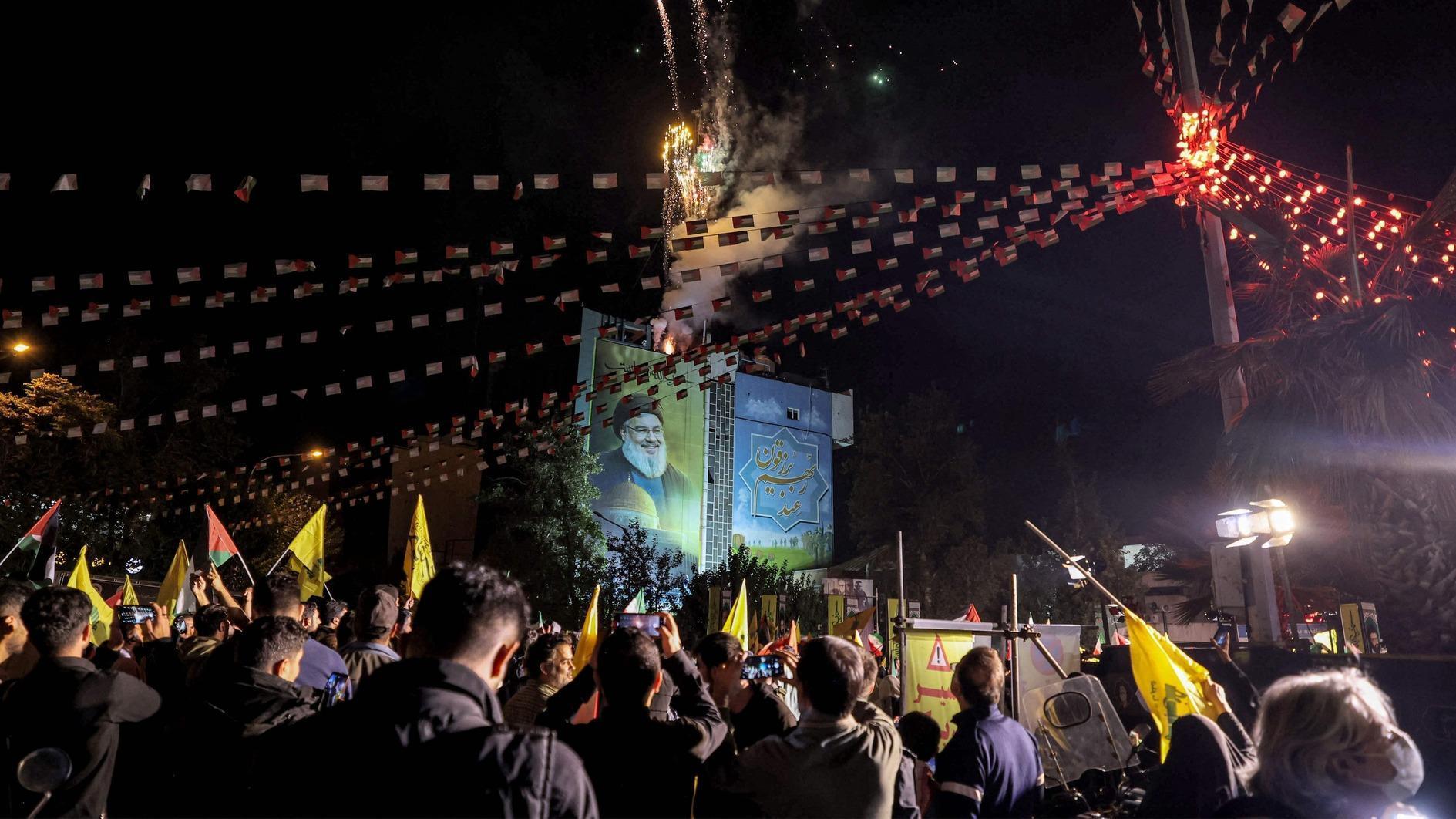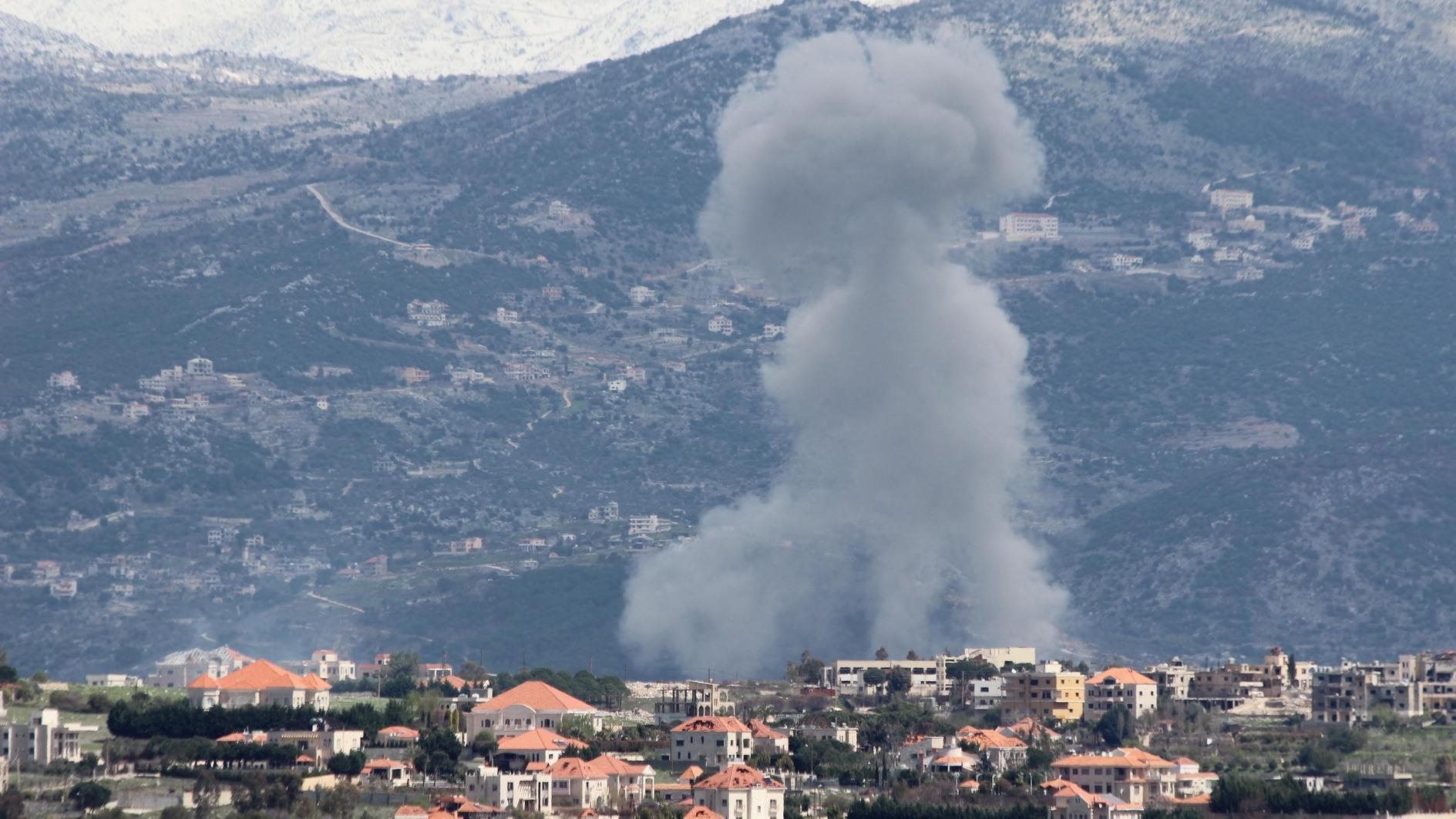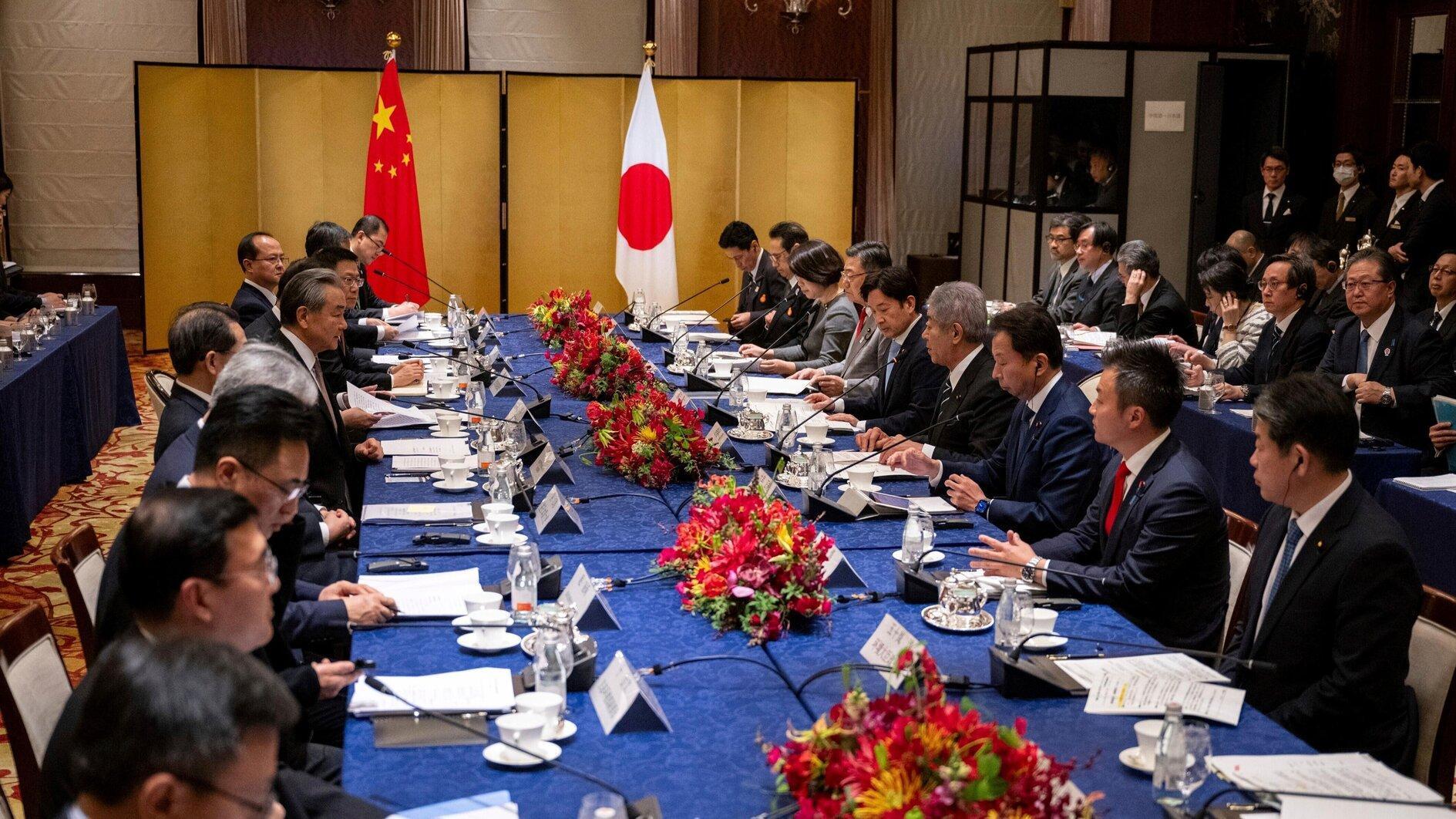Israel vows to make Iran pay for missile attack as regionwide conflict grows
JERUSALEM

Israel vowed to make Iran "pay" for firing a barrage of missiles at its territory, with Tehran warning on Wednesday it would launch an even bigger attack if it is targeted.
Iran launched its second direct attack on Israel in history on Tuesday, firing what it said were 200 missiles including hypersonic weapons, and sending frightened Israeli civilians into shelters.
Israel, which put the number of missiles fired at its territory at 180, pounded Lebanese strongholds of Iran ally Hezbollah, with heavy strikes early Wednesday on south Beirut.
Israel shifted its focus last month from the war in Gaza, which was sparked by Hamas's Oct. 7 attacks, to securing its northern border with Lebanon, where it is fighting Hezbollah.
After issuing numerous threats against Israel, Iran launched its second attack since April, sparking panic in Israel and around the region.
Israel intercepted most of Iran's missiles, while Israeli medics reported two people injured by shrapnel.
One of the missiles damaged a school building.
In the occupied West Bank, a Palestinian was killed in the city of Jericho "when pieces of a rocket fell from the sky and hit him", the city's governor Hussein Hamayel told AFP.
"Iran made a big mistake tonight and will pay for it," Israeli Prime Minister Benjamin Netanyahu said.
"Whoever attacks us, we attack them."
Defense Minister Yoav Gallant, who was at the command and control centre monitoring the interception of Iranian missiles, also vowed vengeance.
"Iran has not learned a simple lesson — those who attack the state of Israel, pay a heavy price," he said in a statement.
'Severe consequences'
Iran's Revolutionary Guards said the attack was in response to Israel's killing last week of Hezbollah chief Hassan Nasrallah, as well as the death of Hamas leader Ismail Haniyeh in a Tehran bombing in July widely blamed on Israel.
The attack also sought to avenge Israel's killing with Nasrallah of leading Iranian commander Abbas Nilforoushan of the Quds Force, the Revolutionary Guards' foreign operations arm.
The attack came after the Israeli military said troops had started "targeted ground raids" in south Lebanon, across Israel's northern border.
On Wednesday, Hezbollah said its fighters clashed with Israeli troops who tried to infiltrate into Lebanon.
The Lebanese army also said Israeli troops had staged two brief incursions before withdrawing shortly afterwards.
Also on Wednesday, the Israeli military announced it was bombarding Hezbollah targets in Beirut.
The spike in violence in Lebanon since mid-September has killed more than 1,000 people and forced hundreds of thousands more to flee their homes.
President Joe Biden said the United States was "fully supportive" of Israel after the missile attack.
U.S. Defense Secretary Lloyd Austin slammed an "outrageous act of aggression" by Iran, while Biden's National Security Advisor Jake Sullivan told reporters there would be "severe consequences".
Iranian state media reported 200 missiles had been fired at Israel including hypersonic weapons for the first time, which the Revolutionary Guards said had targeted "three military bases" around Tel Aviv and others elsewhere.
Iran's Foreign Minister Abbas Araghchi posted on social media platform X that Tehran's "action is concluded unless the Israeli regime decides to invite further retaliation".
Revolutionary Guards commander Major General Mohammad Bagheri also threatened to fire "with bigger intensity" if Israel makes good on its pledge to retaliate.
Iranian President Masoud Pezeshkian said his country had exercised its "legitimate rights" and dealt "a decisive response... to the Zionist regime's aggression".
After issuing a similar call a day earlier, the Israeli military on Wednesday issued an expanded call for residents to evacuate over 20 areas in south Lebanon.
Lebanon's disaster management agency said 1,873 people have been killed since Israel and Hezbollah began trading cross-border fire after the Hamas attacks on Israel on Oct. 7, 2023.
In Gaza, the civil defense agency said Israeli bombings killed 19 people on Tuesday.
Oil, nuclear sites among possible targets
Citing Israeli and U.S. officials, media reports yesterday said thar Israel may respond to Iran’s major ballistic missile attack by striking strategic infrastructure, such as gas or oil rigs, or by directly targeting Iran’s nuclear sites.
Targeted assassinations and attacks on Iran’s air defense systems are also possible responses, according to reports.
An attack on Iranian oil facilities could devastate the country’s economy, and any of the considered responses could mark another escalation.
Netanyahu convened a meeting to discuss potential responses to the attack.
The discussion came after another hours-long meeting of the security cabinet in a bunker underneath Jerusalem late on Oct. 1. That meeting ended with the understanding that Israel would respond to the attack militarily, but without clarity as to how it would do so.
Khamenie slams U.S. presence in Mideast
Iran’s Supreme Leader Ayatollah Ali Khamenei slammed the presence of American and European nations in the Middle East in his first remarks since Tehran fired the barrage of ballistic missiles at Israel.
Khamenei said hat their presence is a source of “conflicts, wars, concerns and enmities” but made no mention of the missile attack the night before.
“Regional nations can manage themselves and ... they will live together in peace,” Khamenei was quoted as saying by the official IRNA news agency.
He said Iran is hopeful of getting “rid of the enemies’ evil” and also urged Western nations to “cut their badness.”
Celebrations in Tehran
On the streets of Tehran, a small crowd celebrated Iran's missile attack on Israel while others are worried about the consequences of the Islamic Republic's boldest move yet in a year of escalating Middle East conflict.
Local media carried footage of what Iran said were 200 missiles as they were fired towards Israel, while state television played upbeat music over the images and showed crowds of a few hundred people celebrating the attacks in the capital and other cities across the country.
Some carried the yellow flag of Hezbollah, Iran's ally in Lebanon, as well as portraits of its late chief Nasrallah.
World urges restraint
The Iran strikes prompted widespread condemnation as well as renewed calls for the escalation in violence to stop.
U.N. chief Antonio Guterres called to stem the "broadening conflict in the Middle East", renewing his calls for a ceasefire, though he stopped short of explicitly condemning Iran.
This prompted Israel to declare Guterres "persona non grata", as Foreign Minister Israel Katz said he did not "deserve to step foot on Israeli soil".
"The Chinese side calls on the international community, especially major influential powers, to truly play a constructive role and prevent the situation from further deteriorating," said a Chinese foreign ministry spokesman in a statement published online.
"This situation is developing by the most worrying scenario," Kremlin spokesman Dmitry Peskov said Wednesday.
"We call all sides towards restraint ... and we condemn any acts that could lead to the death of the civilian population."
Hours earlier, Russia's foreign ministry spokeswoman Maria Zakharova denounced what she said was the "complete failure" of Biden's approach.
"The White House's incomprehensible statements demonstrate its complete helplessness in resolving crises," she posted on Telegram.
Pope Francis called for a day of prayer for peace on October 7, the anniversary of Hamas' attack on Israel.
U.S. Secretary of State Antony Blinken said the attack was "totally unacceptable".
"Initial reports suggest that Israel, with the active support of the United States and other partners, effectively defeated this attack," Blinken said.
Spanish Prime Minister Pedro Sanchez condemned the Iranian strikes and called for an end to the "spiral of violence" blighting the Middle East.
Foreign Minister Jose Manuel Albares said Madrid was issuing "a new call to all the actors, obviously including Israel, to show restraint and not escalation".
French President Emmanuel Macron condemned Iran's attacks against Israel "in the strongest possible terms", adding that France had "mobilized" its military resources in the Middle East to counter Tehran.
Macron also demanded that "Hezbollah cease its terrorist actions against Israel and its population", while asking Israel to "put an end to their military operations as soon as possible".
British Prime Minister Keir Starmer condemned Iran's attack "in the strongest terms".
During a call with his Israeli counterpart Benjamin Netanyahu, Starmer also "expressed the U.K.'s steadfast commitment to Israeli security and the protection of civilians."
Japan's new Prime Minister Shigeru Ishiba said missile attacks by Iran on Israel were "unacceptable".
"We will condemn this strongly. But at the same time, we would like to cooperate (with the United States) to defuse the situation and prevent it from escalating into a full-on war," he said.
















